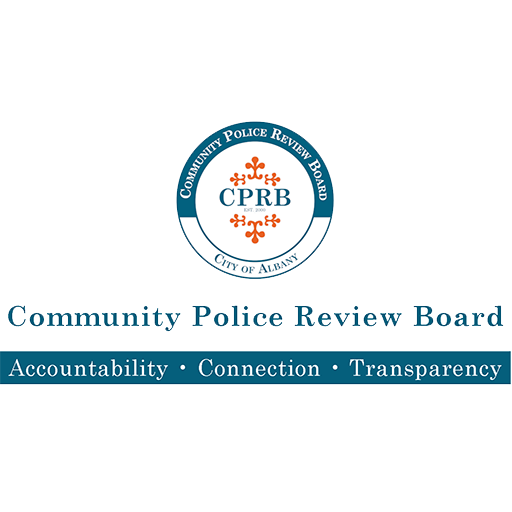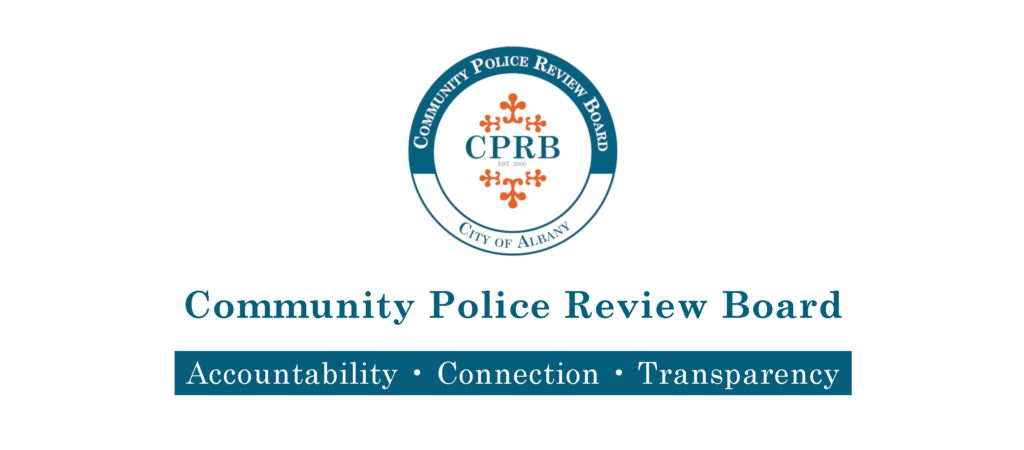Albany’s Community Police Review Board Looks to Restructure
Effective January 1, 2025, the Albany Community Police Review Board (CPRB)’s day-to-day operations will be integrated into the City of Albany.
The CPRB’s new location will be: 175 Central Avenue, 5th Floor, Albany, NY 12206.
CPRB Public Monthly Meetings will be held in City Hall, located at 24 Eagle St, Albany, NY 12207.
Please contact the CPRB by email at [email protected]. The CPRB’s new phone number will be announced.
Please note that communications may be delayed during the transition.
To receive notifications about future CPRB meetings and activities, subscribe to the CPRB’s Notify Me® list on the City of Albany website here.
Background
The structure and work of the CPRB is directed by Part 33 of the Albany City Code. In the original language, the Board had been required to work independently and outside the typical city structure. That means that instead of having office space and employees (among other things) associated with the City and exercising complete independence, the Board relied on an external administrative agency to manage operations.
For years, and because of this unique arrangement, the Government Law Center at the Albany Law School has taken up this role to provide the operational services needed to assist the Board in its duties and day-to-day responsibilities.
Why the change
The ratification of Local Law J in late 2021 enhanced the CPRB’s mandate and laid out new responsibilities that address and amplify public expectations regarding fair, just, and transparent policing. While the changes brought about by the legislation enhanced the Board’s independence, it introduced challenges, including budget constraints, limited staffing, and a need for administrative support. The ability to leverage the City’s resources – like office space, IT, HR, and so on – will allow us to maintain our fiscally responsible approach to achieving police oversight.
Another reason for the change is that while the Albany Law School has been a gracious collaborator, they have shared for some time now that they will no longer look to provide the administrative services we need, officially stating that 2024 will be the last year it serves as CPRB’s administrative partner.
What’s been happening – progress to date
The Board has raised these concerns and initiated conversations regarding its structure and support system on several occasions, most notably during budget discussions where CPRB leaders have continued to flag the need to revisit legislation language and reconsider its operational needs and infrastructure.
The Board coordinated with the Common Council to pass Local Law D, an amendment to Local Law J that brings the Board under the City umbrella.
CPRB members have also crafted and submitted a suggested approach by way of a Transition Plan that looks to:
- Identify tasks and propose suggestions for integration into the City by December 2024.
- Determine a timeline of goals and activities to support the uninterrupted operation of the CPRB.
- Establish a task force of city stakeholders to ensure clear communication and collaboration to implement this critical transition.
CPRB members have also worked closely with City leaders to recruit a new Program Director to lead the CPRB’s day-to-day operations.
Considerations
It is critical that the CPRB maintain its operational and fiscal independence. The CPRB’s independence within the City cannot be influenced or perceived as influenced by political or other inappropriate reasons. Any perception of outside influence or control will undermine the CPRB’s value and the confidence of the citizens of Albany.
Conclusion
While the Board’s distinctive operational structure has been beneficial in the past, it has evolved to shoulder additional duties and responsibilities that necessitate streamlined interagency coordination and support. We have and continue to push for integration into the City system as the most salient means of continuing our mission and ensuring police accountability is embedded in the City’s services.
What you can do
- Track our progress
- Provide public comment at Albany Common Council meetings
- Email our City officials
- Share your thoughts and ideas

